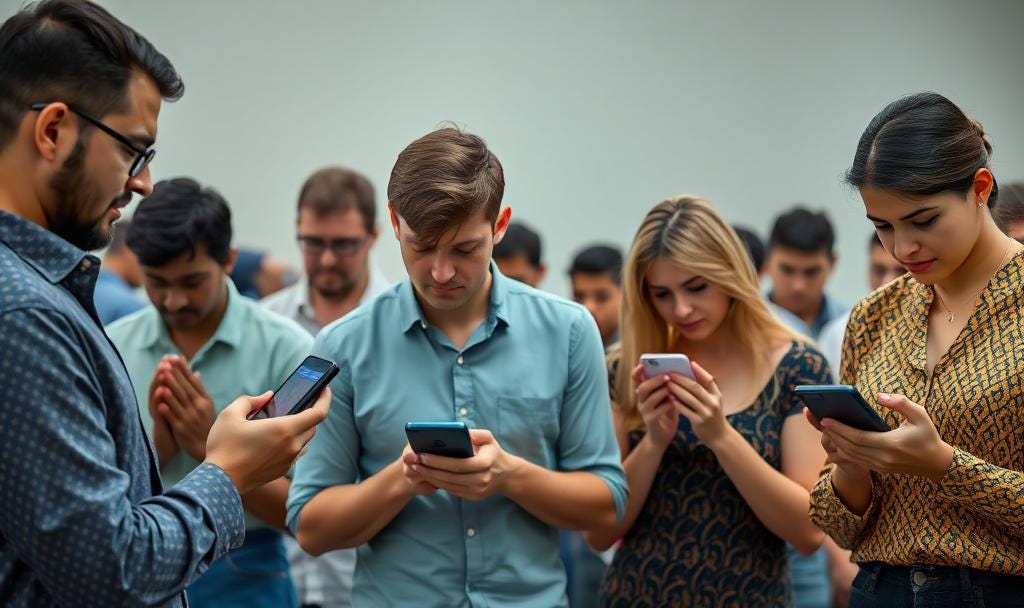Is Prompting the New Praying?
As GenAI becomes a thought partner, are we building new rituals to meet timeless human needs for wisdom, connection, identity, and purpose?
Not long ago, I was sitting with some friends in New York, talking shop. The conversation turned to how I manage to produce so much content—emails, essays, podcast prep—that still sounds like me.
“You just use GenAI for that?” one of them asked.
“Sure do,” I said.
Then came the real question: “But how do you talk to it? How do you prompt?”
That question stuck with me. Because I’d heard it before—just in a different setting. It reminded me of what happens when someone new walks into a church, a mosque, a synagogue. They often ask: How do I pray? What do I say? Am I doing it right?
We may live in an increasingly secular society, but the underlying human needs haven’t gone anywhere. People still seek wisdom, identity, purpose, and community (see the book Strange Rites for a great exploration of this — highly recommend). When traditional avenues fray, we look elsewhere.
Prompting, I’ve come to realize, is becoming a ritual for many—whether they recognize it or not.
I see it in how my friends use GenAI today. One friend built a kind of “confessional GPT” to talk through life decisions with a nonjudgmental counterpart. Another downloaded therapy frameworks to help supplement their journaling practice. I’ve got a prompt I jokingly call my “Deacon GPT”—a trusted voice that surfaces scriptures and reflections when I’m wrestling with doubt or anxiety.
And beyond the spiritual: I use GenAI constantly to sharpen my thinking—but always as one of many thought partners. Like Darwin, who corresponded widely to refine his ideas (I first came across this concept in the excellent book Range — worth reading), I seek out insights from across my network: operators, investors, academics, pastors, founders. There are truths and perspectives that only humans can surface—nuances of experience, unspoken patterns, questions that the data can’t quite capture.
Once I’ve gathered those human insights, that’s when I turn to AI to help me synthesize, iterate, and challenge my own thinking: What do I believe? What don’t I believe? What makes me re-examine an assumption I’ve carried? AI helps me work through those questions faster—but it’s the human conversations that spark them in the first place.
Of course, there are risks. In an era where real friendships are thinning—especially for men (see this article), and where too many people mistake surface interactions for connection—it’s tempting to let AI fill the void entirely. But no machine can replace the beauty (and messiness) of true community. A deep friendship isn’t built on good vibes alone; it’s forged through trust, conflict, and repair.
My hope is this: AI should make us more human, not less. Let it strip friction from the repetitive so we can double down on what only we can do—create, collaborate, wrestle with hard questions together.
Tools change. The human longing for wisdom, connection, identity, and purpose does not.
Prompting may not be praying. But if we’re not mindful, it just might become a stand-in. Better to let it be a supplement—so we can keep the main thing, the main thing.
And one last question I’ve been wondering: are any of my consumer friends seeing signals here? I know every consumer VC and founder I talk to is thinking hard about where the next wave of consumer behavior will go. Is there something in this space? Asking for a clueless B2B investor.
-with gratitude,
eiv
ICYMI posts from this week…



